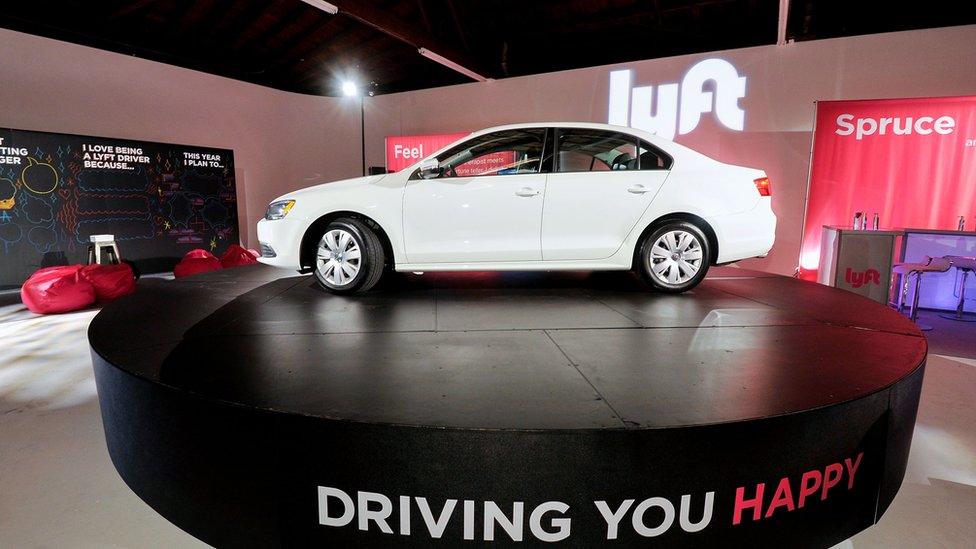Lyft expands Asian partnerships in challenge to Uber
- Published

Lyft currently operates in 150 US cities and does not have offices outside of the US
US ride-sharing service Lyft has expanded a global partnership in a challenge to rival Uber.
It announced an alliance with India's Ola and South East Asia's GrabTaxi which allows customers to book private cars and taxis in each other's regions, starting next year.
It comes after Lyft announced a partnership with China's largest ride-sharing firm Didi Kuaidi in September.
US-based Uber has aggressively expanded globally in recent years.
Lyft, and the three other companies combined will cover nearly all of South East Asia, India, China and the US to include almost 50% of the world's population, said Lyft - which currently operates only in the US.
"By establishing strategic partnerships with local market leaders Didi, GrabTaxi and Ola, we're able to remove many of the pain points and language barriers that often come with foreign travel, the company said in a on Thursday.
Global expansion
Starting early next year, Lyft users travelling to countries in the regions it has partners in, will be able to access the relevant service provider in English through the Lyft app and pay in US dollars.
The same applies to users of Ola, GrabTaxi and Didi Kuaidi, who will be able to access Lyft services through their company's app and pay in their native currencies.
The companies will also share new technology information, products and knowledge of local markets and regulations.
Uber, which operates in 67 countries, already allows users to use the same app to book rides globally.
But, it has been marred with bans and legal battles in cities around the world, stemming from breaking transport regulations.
Lyft's announcement also comes on the same day as reports that Uber is trying to raise $2.1bn (Ā£1.4bn) in new funding that would take the start-up's valuation to $62.5bn. Analysts said the money would likely be used to grow its global expansion.
- Published9 July 2015
- Published16 October 2015
- Published15 September 2015